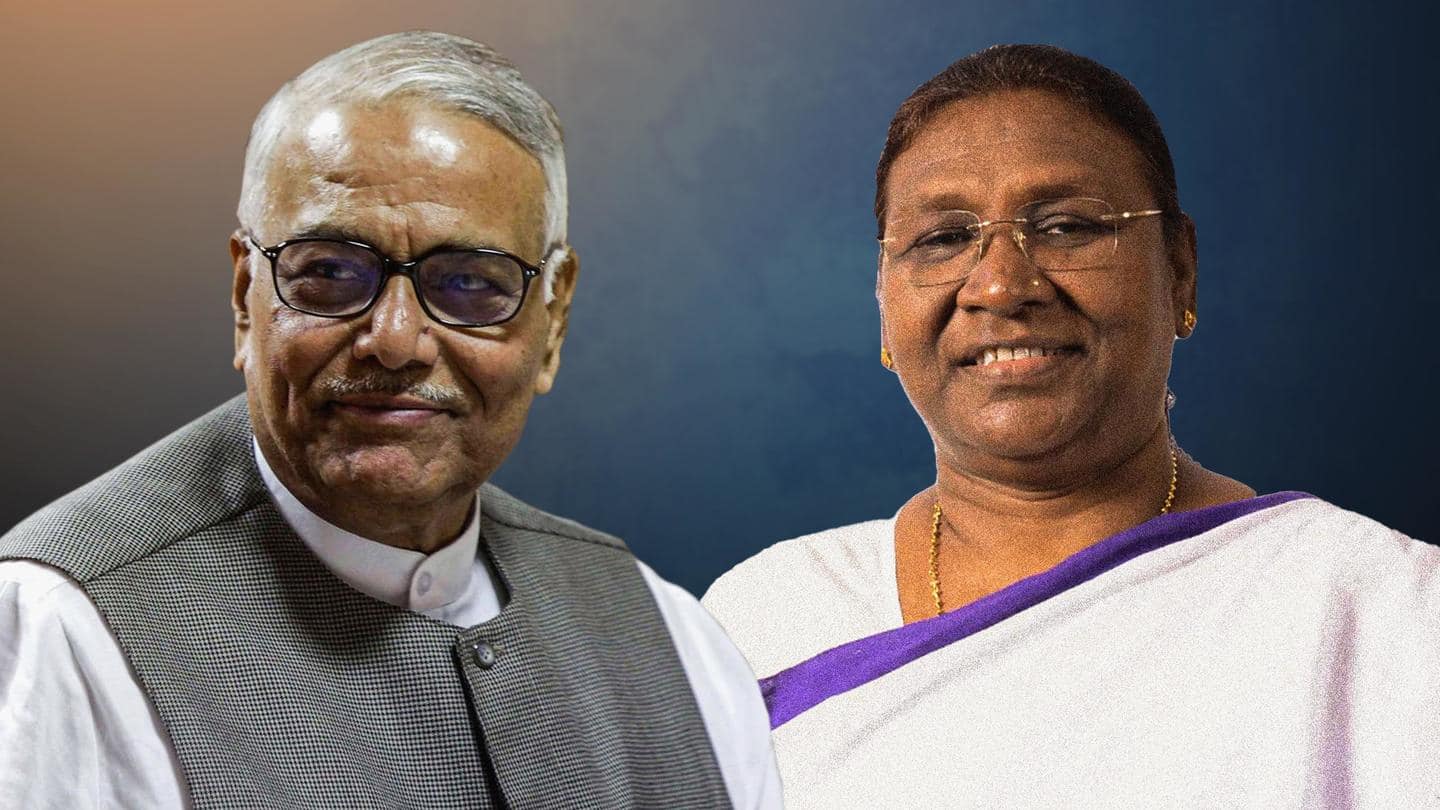
#NewsBytesExplainer: What numbers say about Sinha vs Murmu presidential contest
What's the story
The battle for India's highest constitutional office, that of the president, will take place between the Opposition's joint candidate Yashwant Sinha and the BJP-led NDA's nominee Draupadi Murmu.
Although Murmu has an advantage over Sinha, the race might have a twist as Jammu and Kashmir is currently under President's rule and three other states—Rajasthan, Chhattisgarh, and Tamil Nadu—are ruled by Opposition parties.
Here's more.
Set of electors
President is elected by an electoral college
The President of India is chosen by an electoral college comprising elected members of both Houses of Parliament, representatives of state legislatures, and the union territories of Delhi and Puducherry.
According to the current estimates, the electoral college consists of 776 Members of Parliament (543 Lok Sabha MPs and 233 Rajya Sabha MPs) and 4,809 members of the state legislative assemblies.
Odds
Odds in favor of NDA nominee Murmu
The NDA has roughly 5.26 lakh votes (nearly 49% of total votes) in the Electoral College and needs 1% more to get its candidate elected.
It just requires either YSR Congress Party (YSRCP), Biju Janata Dal (BJD), or All India Anna Dravida Munnetra Kazhagam (AIADMK) to support its candidate.
The BJD and YSRCP have about 31,000 and 45,550 votes in the Electoral College, respectively.
Contest
With BJD's help, contest will be simpler for Murmu
Interestingly, all three aforementioned parties, i.e., BJD, YSRCP, and AIADMK, earlier backed the NDA's presidential candidate, Ram Nath Kovind, in 2017.
So, the contest is likely to be pretty simple for the NDA this year, too.
The reason: Jagan Mohan Reddy's YSRCP is already reportedly on board with the NDA for this presidential election and with Murmu's candidacy, the BJD's support is nearly certain.
Fight
Opposition may throw surprise with veteran leader
Meanwhile, the Opposition's decision to field Sinha is a wise one, since many still regard him as a former BJP and Trinamool Congress leader rather than a Congress-backed presidential contender.
The United Progressive Alliance (UPA)—led by the grand old party—has 25% of the votes in the Electoral College.
It will try to add votes from other parties and opposition groups to change the outcome.
Meeting
BJP held key meeting before announcing presidential nominee
To recall, the announcement of NDA's presidential candidate comes hours after the BJP held a crucial meeting on the presidential elections on Tuesday.
Prime Minister Narendra Modi also reportedly joined the key meeting virtually.
Before this meeting, Union Ministers Amit Shah and Rajnath Singh as well as Nadda had met with Vice-President M Venkaiah Naidu, too, regarding their presidential nominee.
Consensus
Opposition's consensus over Sinha after several uncertainties
On Tuesday, leaders of 17 Opposition parties, including the Trinamool Congress (TMC), Congress, Samajwadi Party, Rashtriya Janata Dal, and Communist Party of India, met to decide on their common presidential candidate.
After three potential candidates rejected the candidacy offer, the Opposition parties jointly nominated veteran politician and TMC Vice-President Yashwant Sinha.
Sinha resigned from all party positions on Tuesday before his candidacy was declared.